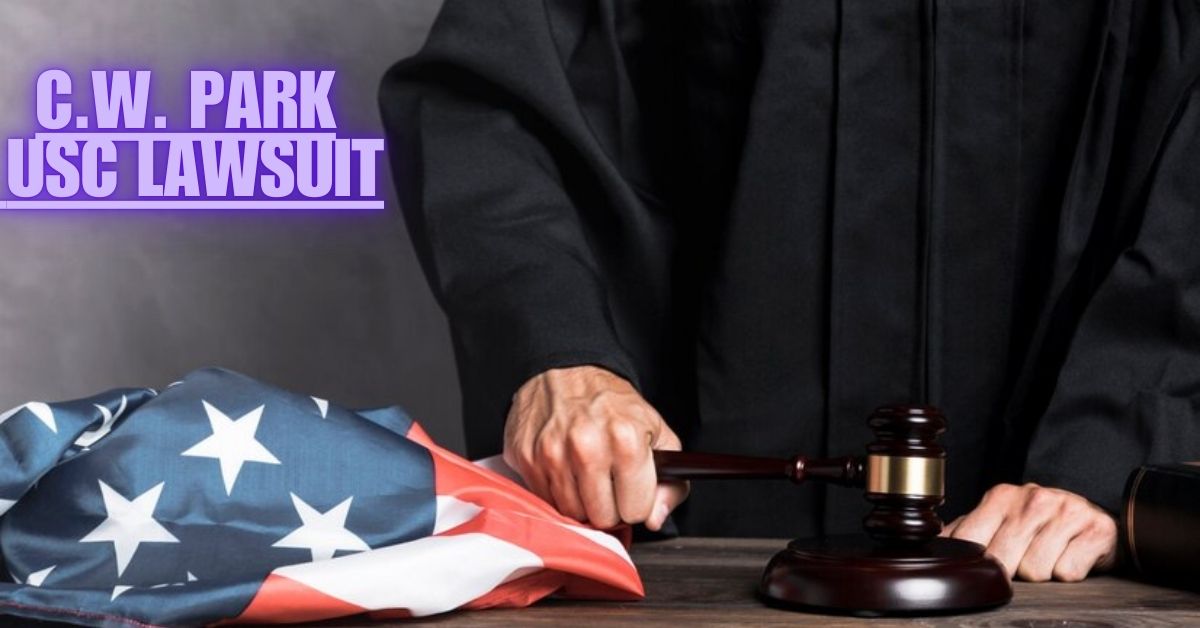The C.W. Park USC Lawsuit: An Overview

The legal battle involving C.W. Park and the University of Southern California (USC) has drawn significant attention due to its implications for academic freedom, workplace conduct, and the broader challenges within higher education institutions. This article delves into the details of the lawsuit, exploring its background, the key issues at stake, and the potential impact on the university community and beyond.
Background of the C.W. Park USC Lawsuit
C.W. Park, a former professor at USC’s Marshall School of Business, filed a lawsuit against the university, alleging wrongful termination, defamation, and other misconduct. The case stems from a series of events that began with Park’s public criticisms of USC’s administration and policies, which he claimed were detrimental to academic integrity and faculty rights.
Park, a respected scholar with a long tenure at USC, argued that his dismissal was a direct result of his outspoken stance against the university’s leadership. He asserted that his termination was not only unjust but also a violation of his rights as a tenured professor.
You Might Also Like: CS ServiceCenterVIP: Efficient Customer Service Guide
Key Issues in the Lawsuit
Academic Freedom
One of the central issues in the C.W. Park lawsuit is the question of academic freedom. Park claimed that his criticisms of the university were protected under the principles of academic freedom, which allow scholars to express their views without fear of retribution. The lawsuit raises important questions about the extent to which academic freedom is protected in today’s academic institutions and whether faculty members can openly challenge university policies without risking their careers.
Wrongful Termination
Park’s lawsuit includes allegations of wrongful termination, asserting that his dismissal was not based on legitimate grounds. According to Park, his firing was retaliatory, aimed at silencing his criticism of the administration. The case highlights the complexities of employment law in academic settings, where the reasons for termination can be contentious and involve multiple layers of institutional policy and governance.
Defamation and Reputation Damage
Another significant aspect of the lawsuit is Park’s claim of defamation. He alleged that USC’s administration made false and damaging statements about him, both internally and publicly, which harmed his professional reputation. The defamation claim underscores the potential for legal battles over reputation and character within the often insular world of academia.
USC’s Response to the Lawsuit
In response to the lawsuit, USC has denied any wrongdoing and defended its actions as appropriate and justified. The university argued that Park’s termination was based on legitimate performance-related issues and that his claims of retaliation and defamation were unfounded.
USC’s legal team has also emphasized the university’s commitment to upholding academic freedom while maintaining that this freedom does not protect faculty members from the consequences of behavior that violates university policies or expectations.
Implications for the Academic Community
The Balance Between Academic Freedom and Institutional Authority
The C.W. Park USC Lawsuit brings to the forefront the delicate balance between academic freedom and institutional authority. While academic freedom is a cornerstone of higher education, allowing scholars to explore, debate, and challenge ideas without fear of censorship, it must coexist with the need for universities to enforce standards of conduct and maintain their reputations. This case may set a precedent for how these competing interests are balanced in the future.
Faculty Rights and Protections
The lawsuit also raises broader questions about the rights and protections available to faculty members, particularly those with tenure. Tenure is designed to protect scholars from arbitrary dismissal and to support their ability to conduct research and express opinions freely. However, the case highlights the potential vulnerabilities even tenured professors may face when they come into conflict with university administrations.
The Role of Litigation in Higher Education
As legal disputes involving faculty and universities become more common, the role of litigation in resolving such conflicts is increasingly scrutinized. The C.W. Park lawsuit serves as a reminder that legal action can have significant consequences for all parties involved, including potential reputational damage and financial costs. It also illustrates the challenges of resolving complex disputes within the legal system, which may not always align with the academic values of dialogue and debate.
Conclusion
The C.W. Park USC lawsuit is a complex and multifaceted case that touches on critical issues within higher education, including academic freedom, faculty rights, and the responsibilities of university administrations. As the case progresses, it will likely continue to draw attention from scholars, legal experts, and the public, offering valuable insights into the ongoing challenges faced by academic institutions in navigating the delicate balance between freedom of expression and institutional governance.
The outcome of the lawsuit could have far-reaching implications, not only for C.W. Park USC Lawsuit but also for the broader academic community. It may influence future policies and practices related to faculty employment, academic freedom, and the role of universities in fostering open and respectful environments for scholarly inquiry and debate.
FAQs
What is the C.W. Park USC lawsuit about?
The lawsuit involves C.W. Park, a former USC professor, who alleges wrongful termination, defamation, and retaliation by the university after he criticized its administration and policies.
Why is academic freedom a key issue in the lawsuit?
Academic freedom is central to the lawsuit because Park claims his dismissal was a violation of his right to express his views openly as a tenured professor. The case raises questions about the protection of academic freedom in higher education.
What are the potential implications of the lawsuit?
The lawsuit could set a precedent for how universities balance academic freedom with institutional authority, and it may influence future policies related to faculty rights and employment practices.
How has USC responded to the lawsuit?
USC has denied the allegations, asserting that Park’s termination was based on legitimate performance issues and not retaliation for his criticisms. The university has defended its actions as appropriate and justified.
What does the lawsuit mean for other tenured professors?
The case highlights the potential risks even tenured professors may face when they challenge university administrations. It underscores the importance of clear policies and protections for faculty members to ensure their rights are upheld.



